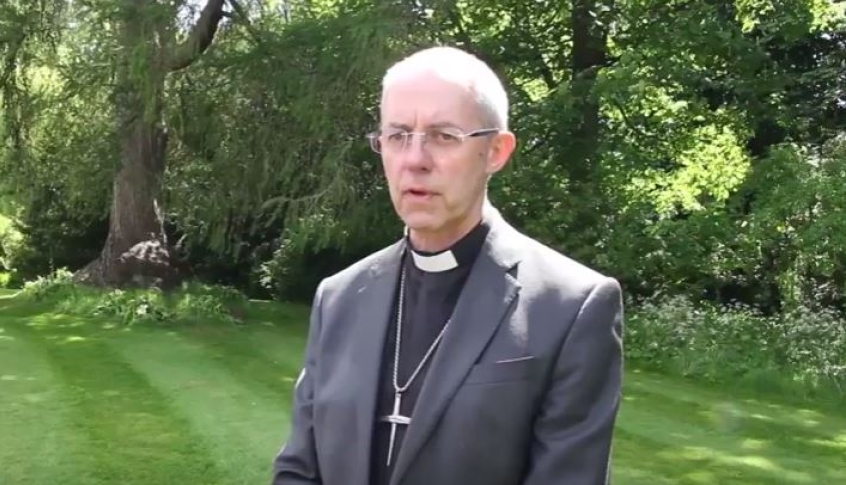The Archbishop of Canterbury and his daughters Katharine and Ellie have spoken of how they have wrestled with issues around healing, disability and mental health.
Interviewed for the BBC by Kate Monaghan and Simon Minty in connection with a forthcoming Lambeth Palace event on disability, Justin Welby said his family's personal experience gave an 'emotional edge' to his commitment to inclusivity. Katharine Welby-Roberts has written about her experience of depression in her book I Thought There Would Be Cake, while Ellie has dyspraxia.

Asked about Christian healing, Welby said that 'for me the problem with healing is not that God never heals or that God always heals, it's just that God just seems sometimes to heal' – but not, he added, in 'any of the things that have affected me or the family most deeply'.
He said: 'What I notice about Jesus is he never treats people other than with perfect respect and love and affection. So he never manipulates, he never puts pressure on them, he never treats them in any way other than you or I would want to be treated. And obviously it's right to pray, praying is simply about bringing what's in your heart before God, letting him change what's in your heart. And sometimes he changes the situation you've brought as well.'
He said that while he prayed for Katharine's mental health, he had not prayed for Ellie's healing. The family had discussed it, he said, but Ellie's younger sister had said that 'if God changed Ellie she wouldn't be Ellie, and we love Ellie'.
Asked for her reaction, Ellie said: 'It's a difficult one because sometimes when it comes down to the topic of healing and stuff. Especially the last few weeks I would say, I have felt a bit like, well if God heals why am I still dyspraxic, why do I still find it really difficult to do things? But at the same time it doesn't change the way I trust God, the way I believe in God, it's just something... healing is a topic that I find quite difficult really to get my head around.'
Katharine spoke of her 'dark times' and her reaction to being offered prayer for healing. 'I think with mental health, as with any disability, if your first response is, 'Can I pray for your healing?' then you're not listening. Because actually: A, you don't need to say to someone you're praying for their healing for God to be able to work; God's bigger than that; and B, it really shuts down the conversation.
'I now actually only let a very few people pray for my healing because I've had so many really awful experiences of things that people have said and the way that they've behaved. They don't do it on purpose, they're trying to help, they're trying to be helpful, but they're not listening.'
They spoke of the need for the church to be sensitive to the different needs of people with physical and other disabilities, with Katharine saying: 'It's culture and attitudes and understanding that everyone's needs and capabilities are different and that everyone's style of church or way of connecting with God is different as well.'
Archbishop Welby commented it was 'extraordinary' than in ancient buildings such as churches, heritage preservation overrides disabled access. 'That's one way of saying we don't care about you, isn't it?' he said.













